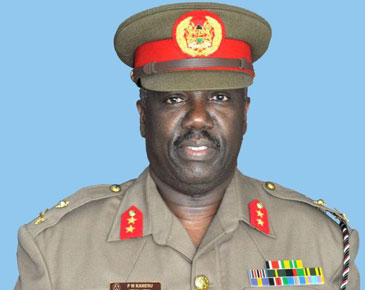×
The Standard e-Paper
Home To Bold Columnists
 |
| NIS Director General nominee Philip Kameru. |
President Uhuru Kenyatta has nominated Major General Philip Wachira Kameru as the Director General of the National Intelligence Service (NIS).
Mr Kameru, who has been the Director of Kenya Defence Forces’ Military Intelligence will succeed Maj-Gen Michael Gichangi, who resigned last week citing personal reasons.